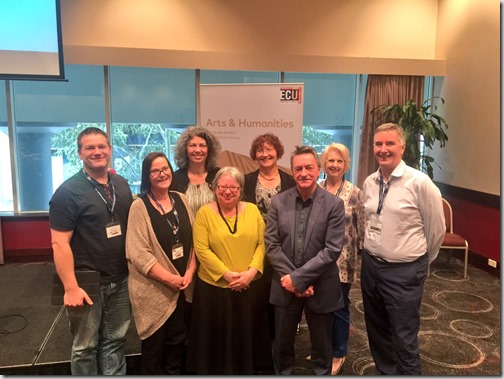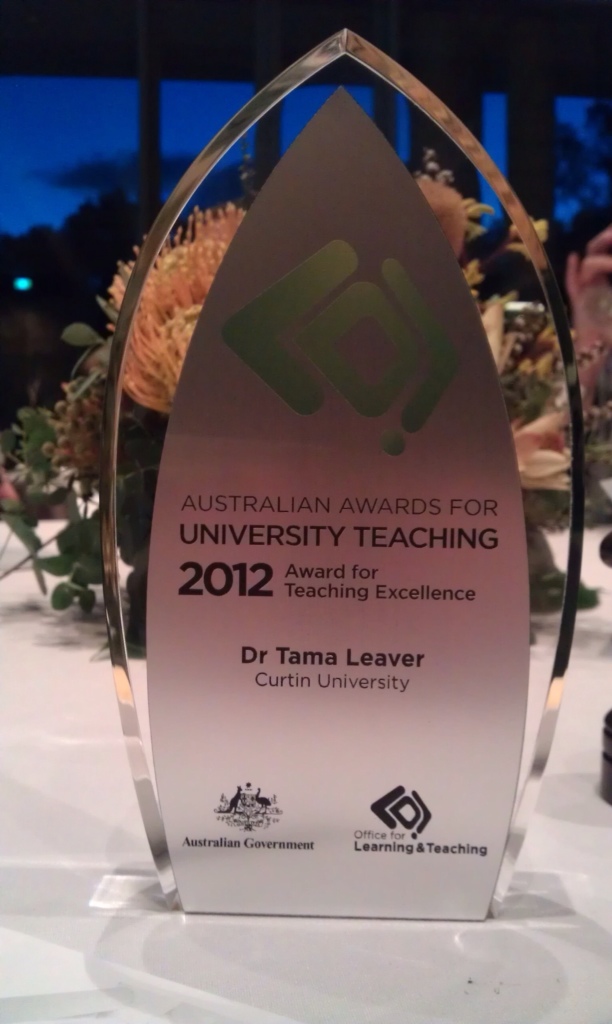Home » australia
Category Archives: australia
Make no mistake, this was Australia’s Brexit.
 <heartbroken rant>
<heartbroken rant>
Seeing the referendum to give a Voice to Aboriginal and Torres Strait Islander peoples profoundly defeated across Australia today is heart-breaking and confusing.
My heart goes out to all Australians feeling let down, but especially, of course, to the Indigenous people of this country for whom this would have been, at least, one small step in the right direction.
As someone who researches online communication, digital platforms and how we communicate and tell stories to each other, I fear the impact of this referendum will be even wider still.
The rampant and unabashed misinformation and disinformation that washed over social media, and was then amplified and normalised as it was reported in mainstream media, is more than worrying.
Make no mistake, this was Australia’s Brexit. It was the pilot, the test, to see how far disinformation can succeed in campaigning in this country. And succeed it did.
In the UK, the pretty devastating economic impact of Brexit has revealed the lies that drove campaigning for it (as have former campaigners who admitted the truth was no barrier for them).
I fear most non-Indigenous Australians will not have as clear and unambiguous a sign that they’ve been lied to, at least this time.
In Australia, the mechanisms of disinformation have now been tested, polished, refined and sharpened. They will be a force to be reckoned with in all coming elections. And our electoral laws lack the teeth to do almost anything about that right now.
I do not believe that today’s result is just down to disinformation, but I do believe it played a significant role. I’m not sure if it changed the outcome, but I’m not sure it didn’t, either.
There was research that warned about the unprecedented levels of misinformation looking at early campaigning around the Voice. There will be more that looks back after this result.
But before another election comes along, we need more than just research. We need more than just improved digital literacies, although that’s profoundly necessary.
We need critical thinking like never before, we need to equip people to make informed choices by being able to spot bullshit in its myriad forms.
I am under no illusion that means people will agree, but they deserve to have tools to make an actually informed choice. Not a coerced one. Social media isn’t just entertainment; it’s our political sphere. Messages don’t just live on social media, even if they start there.
Messages might start digital, but they travel across all media, old and new.
I know this is a rant after a profoundly disappointing referendum, and probably not the best expressed one. But there is so much work to do if this country isn’t even more assailed by weaponised disinformation at every turn.
</heartbroken rant>
Banning ChatGPT in Schools Hurts Our Kids
![Learning with Technology [Image: “Learning with technology” generated by Lexica, 1 February 2023]](https://www.tamaleaver.net/wordpress/wp-content/uploads/2023/02/0fa4f0c3-f56a-41fb-b04a-a962eeb666f4.jpg) As new technologies emerge, educators have an opportunity to help students think about the best practical and ethical uses of these tools, or hide their heads in the sand and hope it’ll be someone else’s problem.
As new technologies emerge, educators have an opportunity to help students think about the best practical and ethical uses of these tools, or hide their heads in the sand and hope it’ll be someone else’s problem.
It’s incredibly disappointing to see the Western Australian Department of Education forcing every state teacher to join the heads in the sand camp, banning ChatGPT in state schools.
Generative AI is here to stay. By the time they graduate, our kids will be in jobs where these will be important creative and productive tools in the workplace and in creative spaces.
Education should be arming our kids with the critical skills to use, evaluate and extend the uses and outputs of generative AI in an ethical way. Not be forced to try them out behind closed doors at home because our education system is paranoid that every student will somehow want to use these to cheat.
For many students, using these tools to cheat probably never occurred to them until they saw headlines about it in the wake of WA joining a number of other states in this reactionary ban.
Young people deserve to be part of the conversation about generative AI tools, and to help think about and design the best practical and ethical uses for the future.
Schools should be places where those conversations can flourish. Having access to the early versions of tomorrow’s tools today is vital to helping those conversations start.
Sure, getting around a school firewall takes one kid with a smartphone using it as a hotspot, or simply using a VPN. But they shouldn’t need to resort to that. Nor should students from more affluent backgrounds be more able to circumvent these bans than others.
Digital and technological literacies are part of the literacy every young person will need to flourish tomorrow. Education should be the bastion equipping young people for the world they’re going to be living in. Not trying to prevent them thinking about it at all.
[Image: “Learning with technology” generated by Lexica, 1 February 2023]
Update: Here’s an audio file of an AI speech synthesis tool by Eleven Labs reading this blog post:
Web’s inventor says news media bargaining code could break the internet. He’s right — but there’s a fix
Tama Leaver, Curtin University
The inventor of the World Wide Web, Tim Berners-Lee, has raised concerns that Australia’s proposed News Media and Digital Platforms Mandatory Bargaining Code could fundamentally break the internet as we know it.
His concerns are valid. However, they could be addressed through minor changes to the proposed code.
How could the code break the web?
The news media bargaining code aims to level the playing field between media companies and online giants. It would do this by forcing Facebook and Google to pay Australian news businesses for content linked to, or featured, on their platforms.
In a submission to the Senate inquiry about the code, Berners-Lee wrote:
Specifically, I am concerned that the Code risks breaching a fundamental principle of the web by requiring payment for linking between certain content online. […] The ability to link freely — meaning without limitations regarding the content of the linked site and without monetary fees — is fundamental to how the web operates.
Currently, one of the most basic underlying principles of the web is there is no cost involved in creating a hypertext link (or simply a “link”) to any other page or object online.
When Berners-Lee first devised the World Wide Web in 1989, he effectively gave away the idea and associated software for free, to ensure nobody would or could charge for using its protocols.
He argues the news media bargaining code could set a legal precedent allowing someone to charge for linking, which would let the genie out of the bottle — and plenty more attempts to charge for linking to content would appear.
If the precedent were set that people could be charged for simply linking to content online, it’s possible the underlying principle of linking would be disrupted.
As a result, there would likely be many attempts by both legitimate companies and scammers to charge users for what is currently free.
While supporting the “right of publishers and content creators to be properly rewarded for their work”, Berners-Lee asks the code be amended to maintain the principle of allowing free linking between content.
Google and Facebook don’t just link to content
Part of the issue here is Google and Facebook don’t just collect a list of interesting links to news content. Rather the way they find, sort, curate and present news content adds value for their users.
They don’t just link to news content, they reframe it. It is often in that reframing that advertisements appear, and this is where these platforms make money.
For example, this link will take you to the original 1989 proposal for the World Wide Web. Right now, anyone can create such a link to any other page or object on the web, without having to pay anyone else.
But what Facebook and Google do in curating news content is fundamentally different. They create compelling previews, usually by offering the headline of a news article, sometimes the first few lines, and often the first image extracted.
For instance, here is a preview Google generates when someone searches for Tim Berners-Lee’s Web proposal:
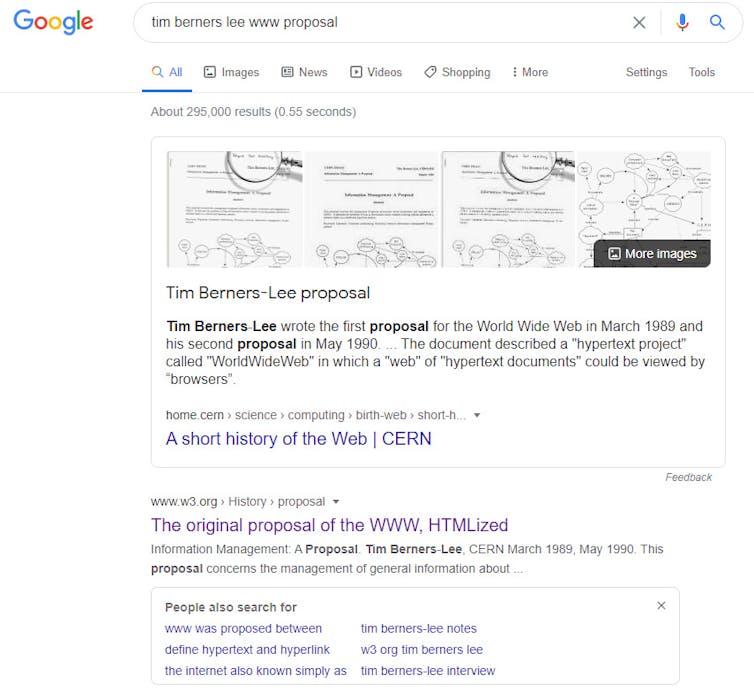
Evidently, what Google returns is more of a media-rich, detailed preview than a simple link. For Google’s users, this is a much more meaningful preview of the content and better enables them to decide whether they’ll click through to see more.
Another huge challenge for media businesses is that increasing numbers of users are taking headlines and previews at face value, without necessarily reading the article.
This can obviously decrease revenue for news providers, as well as perpetuate misinformation. Indeed, it’s one of the reasons Twitter began asking users to actually read content before retweeting it.
A fairly compelling argument, then, is that Google and Facebook add value for consumers via the reframing, curating and previewing of content — not just by linking to it.
Can the code be fixed?
Currently in the code, the section concerning how platforms are “Making content available” lists three ways content is shared:
- content is reproduced on the service
- content is linked to
- an extract or preview is made available.
Similar terms are used to detail how users might interact with content.
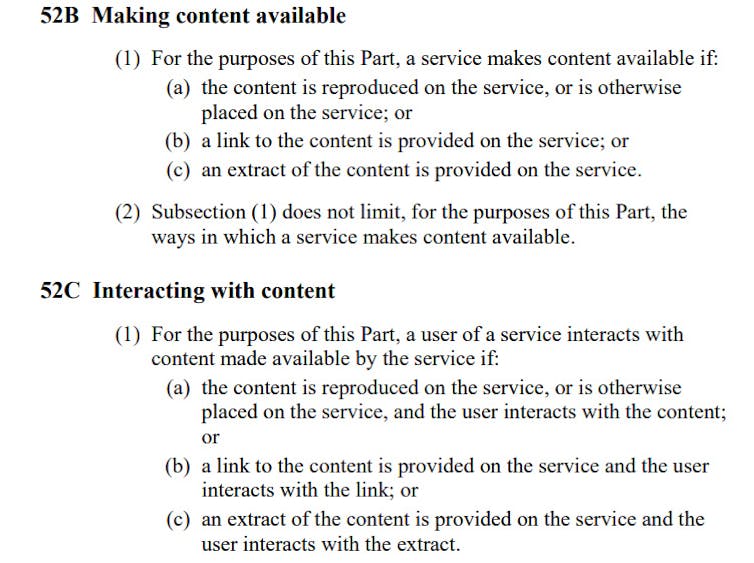
Australian Government
If we accept most of the additional value platforms provide to their users is in curating and providing previews of content, then deleting the second element (which just specifies linking to content) would fix Berners-Lee’s concerns.
It would ensure the use of links alone can’t be monetised, as has always been true on the web. Platforms would still need to pay when they present users with extracts or previews of articles, but not when they only link to it.
Since basic links are not the bread and butter of big platforms, this change wouldn’t fundamentally alter the purpose or principle of creating a more level playing field for news businesses and platforms.
In its current form, the News Media and Digital Platforms Mandatory Bargaining Code could put the underlying principles of the world wide web in jeopardy. Tim Berners-Lee is right to raise this point.
But a relatively small tweak to the code would prevent this, It would allow us to focus more on where big platforms actually provide value for users, and where the clearest justification lies in asking them to pay for news content.
For transparency, it should be noted The Conversation has also made a submission to the Senate inquiry regarding the News Media and Digital Platforms Mandatory Bargaining Code.![]()
Tama Leaver, Professor of Internet Studies, Curtin University
This article is republished from The Conversation under a Creative Commons license. Read the original article.
Reflections and Resources from the 2017 Digitising Early Childhood Conference
Last week’s Digitising Early Childhood conference here in Perth was a fantastic event which brought together so many engaging and provocative scholars in a supportive and policy/action-orientated environment (which I suppose I should call ‘engagement and impact’-orientated in Australia right now). For a pretty well document overview of the conference itself, you can see the quite substantial tweets collected via the #digikids17 hashtag on Twitter, which I’d really encourage you to look over. My head is still buzzing, so instead to trying to synthesise everyone else’s amazing work, I’m just going to quickly point to the material that arose my three different talks in case anyone wishes to delve further.
First up, here are the slides for my keynote ‘Turning Babies into Big Data—And How to Stop It’:
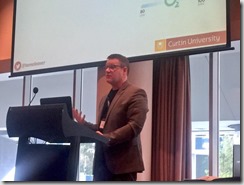 If you’d like to hear the talk that goes with the slides, there’s an audio recording you can download here. (I think these were filmed, so if a link becomes available at some point, I’ll update and post it here.) There was a great response to my talk, which was humbling and gratifying at the same time. There was also quite a lot of press interest, too, so here’s the best pieces that are available online (and may prove a more accessible overview of some of the issues I explored):
If you’d like to hear the talk that goes with the slides, there’s an audio recording you can download here. (I think these were filmed, so if a link becomes available at some point, I’ll update and post it here.) There was a great response to my talk, which was humbling and gratifying at the same time. There was also quite a lot of press interest, too, so here’s the best pieces that are available online (and may prove a more accessible overview of some of the issues I explored):
- Rebecca Turner’s ABC article ‘Owlet Smark Sock prompts warning for parents, fears over babies’ sensitive health data’;
- Leon Compton’s interview on ABC Radio Tasmania ‘Social media and parenting: the do’s and don’ts’ (audio);
- Brigid O’Connell’s Herald Sun story, Parents may be unwittingly turning babies into big data (paywalled); and
- Cathy O’Leary’s story in The Western Australian, Parents airing kids’ lives on social media.
While our argument is still being polished, the slides for this version of Crystal Abidin and my paper From YouTube to TV, and back again: Viral video child stars and media flows in the era of social media are also available:
This paper began as a discussion after our piece about Daddy O Five in The Conversation and where the complicated questions about children in media first became prominent. Crystal wasn’t able to be there in person, but did a fantastic Snapchat-recorded 5-minute intro, while I brought home the rest of the argument live. Crystal has a great background page on her website, linking this to her previous work in the area. There was also press interest in this talk, and the best piece to listen to (and hear Crystal and I in dialogue, even though this was recorded at different times, on different continents!):
- Brett Worthington’s Life Matters segment on Radio National, How social media videos turn children into viral sensations (audio)
Finally, as part of the Higher Degree by Research and Early Career Researcher Day which ended the conference, I presented a slightly updated version of my workshop ‘Developing a scholarly web presence & using social media for research networking’:
Overall, it was a very busy, but very rewarding conference, with new friends made, brilliant new scholarship to digest, and surely some exciting new collaborations begun!
[Photo of the Digitising Early Childhood Conference Keynote Speakers]
Angry Birds as a Social Network Market
Earlier today my colleague Michele Willson and I ran the ANZCA PreConference Social, Casual, Mobile: Changing Games which went really well, bringing together 17 games scholars from Australia and Canada, including a fantastic keynote by Mia Consalvo and plenary by John Banks.
I also had the opportunity to present today, and the slides and audio from my talk are below:
And here’s the abstract if you’re interested:
The hugely successful franchise Angry Birds by Finnish company Rovio is synonymous with the new and growing market of app-based games played on smartphones and tablets. These are often referred to as ‘casual games’, highlighting their design which rewards short bursts of play, usually on mobile media devices, rather than the sustained attention and dedicated hardware required for larger PC or console games. Significantly, there is enormous competition within the mobile games, while the usually very low cost (free, or just one or two dollars) makes a huge ranges of choices available to the average consumer. Moreover, these choices are usually framed by just one standardised interface, such as the Google Play store for Android powered devices, or the Apple App store for iOS devices. Within this plethora of options, I will argue that in addition to being well designed and enjoyable to play, successful mobile games are consciously situated within a social network market.
The concepts of ‘social network markets’ reframes the creative industries not so much as the generators of intellectual property outputs, but as complex markets in which the circulation and value of media is as much about taste, recommendations and other networked social affordances (Potts, Cunningham, Hartley, & Ormerod, 2008). For mobile games, one of the most effective methods of reaching potential players, then, is through the social attentions and activity of other players. Rovio have been very deliberate in the wide-spread engagement with players across a range of social media platforms, promoting competitive play via Twitter and Facebook, highlighting user engagement such as showcasing Angry Birds themed cakes, and generally promoting fan engagement on many levels, encouraging the ‘spreadability’ of Angry Birds amongst social networks (Jenkins, Ford, & Green, 2013). In line with recognising the importance of engagement with the franchise, Rovio have also taken a very positive approach of unauthorised merchandising and knock-offs, especially in China and South-East Asia. In line with Montgomery and Potts’ (2008) argument that a weaker intellectual property approach will foster a more innovative creative industries in China, rather than attempting to litigate of lock down unauthorised material, Rovio have stated they see this as building awareness of Angry Birds and are working to harness this new, socially-driven market (Dredge, 2012). As Rovio now license everything from Angry Birds plush toys to theme parks, social network markets can be perpetuated even by unauthorised material, which builds awareness and interest in the official games and merchandising in the long run. Far from a standalone example, this paper argues that not only is Rovio consciously situating Angry Birds within a social network market model, but that such a model can drive other mobile games success in the future.
References
Dredge, S. (2012, January 30). Angry Birds boss: “Piracy may not be a bad thing: it can get us more business.” The Guardian. Retrieved from http://www.guardian.co.uk/technology/appsblog/2012/jan/30/angry-birds-music-midem
Jenkins, H., Ford, S., & Green, J. (2013). Spreadable Media: Creating Value and Meaning in a Networked Culture. New York and London: New York University Press.
Montgomery, L., & Potts, J. (2008). Does weaker copyright mean stronger creative industries? Some lessons from China. Creative Industries Journal, 1(3), 245–261. doi:10.1386/cij.1.3.245/1
Potts, J., Cunningham, S., Hartley, J., & Ormerod, P. (2008). Social network markets: a new definition of the creative industries. Journal of Cultural Economics, 32(3), 167–185. doi:10.1007/s10824-008-9066-y
Digital Culture Links: May 21st
Links through to May 21st:
- Sensis Yellow Social Media Report 2013 [PDF] – The new Sensis Yellow Social Media Report is out (based on a survey of 937 Australians in March and April 2013), showing widespread social media use, with growth in mobile and second screen uses:
* 95% of AUstralian social media users use Facebook
* The typical Australian spends 7 hrs/wk on Facebook
* 67% of Australians access social sites on a smartphone
* 42% of Australians use social media while watching TV - A better, brighter Flickr [Flickr Blog] – Yahoo have majorly redesigned Flickr, giving new free (ad-supported) accounts 1Tb of storage, which is an awful lot of photos. The Android app is now almost identitcal to the iOS app, but the new aesthetics of the web-based version are a big change, looking more and more like every other photo-sharing service around today. Quite a few long-term Flickr users (of which I am one) have voiced a range of concerns about the design changes. Also, what this redesign means for people who’ve already paid for Pro accounts is deeply unclear on the main Flickr pages. (The Twitter account seems to suggest nothing changes.)
- Yahoo! to Acquire Tumblr / Yahoo [Yahoo News Centre] – Yahoo buys Tumblr for $1.1 billion and, in their words, “promises not to screw it up”. A clever buy for Yahoo, but it’ll be hard to integrate the rebellious/youth Tumblr userbase into the Yahoo brand.
- Introducing Photos of You [Instagram Blog] – Just in case you momentarily forgot that Facebook owns Instagram, the photo-sharing service has just added the ability to tag photos (remarkably similar to Facebook’s tagging function). Looks like Instagram needs a better map of your personal networks before they can harness it commercially.
- Follow the audience… [YouTube Blog] – May 2013 and YouTube users “are watching more than 6 billion hours of video each month on YouTube; almost an hour a month for every person on Earth and 50 percent more this year than last.”
Digital Culture Links: January 16th
Links through to January 16th:
- Beatles’ First Single Enters Public Domain — In Europe [Techdirt] – The Beatles remain the iconic pop group, so news on VVN/Music that their very first single has now entered the public domain is something of a landmark moment in music:
The Beatles first single, Love Me Do / P.S. I Love You, has entered the public domain in Europe and small labels are already taking advantage of the situation.The European copyright laws grant ownership of a recorded track for fifty years, which Love Me Do just passed. That means that, starting January 1 of 2013, anyone who wants to put out the track is free to do so.
Unfortunately, if you’re in the US, you’ll probably have to wait until 2049 or so. And things are about to get worse in Europe too. As Techdirt reported, back in 2011 the European Union agreed to increase the copyright term for sound recordings by 20 years, - App Store Tops 40 Billion Downloads with Almost Half in 2012 [Apple – Press Info] – Apple passes 40 billion app downloads: “Apple® today announced that customers have downloaded over 40 billion apps*, with nearly 20 billion in 2012 alone. The App Store℠ has over 500 million active accounts and had a record-breaking December with over two billion downloads during the month. Apple’s incredible developer community has created over 775,000 apps for iPhone®, iPad® and iPod touch® users worldwide, and developers have been paid over seven billion dollars by Apple.”
- World Map of Social Networks [Vincos Blog] –
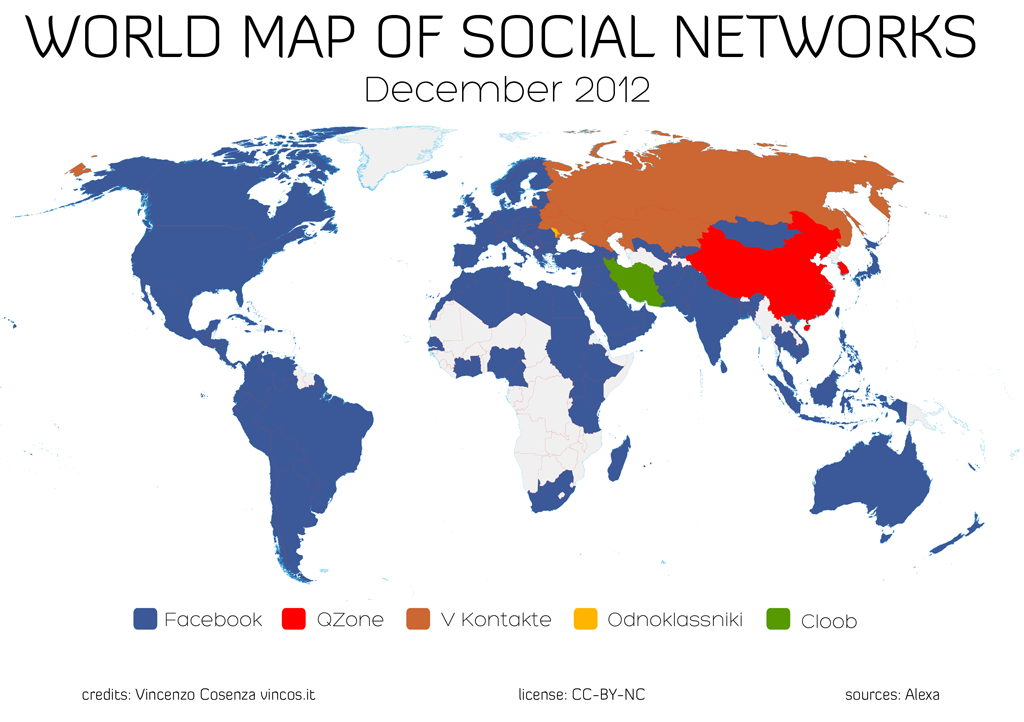 “December 2012, a new edition of my World Map of Social Networks, showing the most popular social networking sites by country, according to Alexa traffic data (Google Trends for Websites was shut down on September 2012). Facebook with 1 billion active users has established its leadership position in 127 out of 137 countries analyzed. One of the drivers of its growth is Asia that with 278 million users, surpassed Europe, 251 million, as the largest continent on Facebook. North America has 243 million users, South America 142 million. Africa, almost 52 million, and Oceania just 15 million (source: Facebook Ads Platform). In the latest months Zuckerberg’s Army conquered Armenia, Kyrgyzstan, Latvia and Vietnam.”
“December 2012, a new edition of my World Map of Social Networks, showing the most popular social networking sites by country, according to Alexa traffic data (Google Trends for Websites was shut down on September 2012). Facebook with 1 billion active users has established its leadership position in 127 out of 137 countries analyzed. One of the drivers of its growth is Asia that with 278 million users, surpassed Europe, 251 million, as the largest continent on Facebook. North America has 243 million users, South America 142 million. Africa, almost 52 million, and Oceania just 15 million (source: Facebook Ads Platform). In the latest months Zuckerberg’s Army conquered Armenia, Kyrgyzstan, Latvia and Vietnam.” - Over 8 million game downloads on Christmas Day! [Rovio Entertainment Ltd] – Rovio’s big Christmas download haul: “Wow, what a year! We released four critically-acclaimed bestselling mobile games, developed two top-rated Facebook games, and reached more than a billion downloads — all before our 3rd “Birdday”! Angry Birds Star Wars and Bad Piggies in particular have dominated the app charts, with Angry Birds Star Wars holding the #1 position on the US iPhone chart ever since its release! To top it all off, we had 30 million downloads during Christmas week (December 22-29) and, on Christmas Day, over 8 million downloads in 24 hours alone!”
- R18+ game rating comes into effect [ABC News (Australian Broadcasting Corporation)] – Finally: “An R18+ video game rating has come into effect across Australia after a deal between the states and the Commonwealth last year. The change means some games that were previously unavailable to adults can go on sale, whereas others that could be accessed by children will become restricted. The issue had divided interest groups, with some claiming the new classification would protect children but others feared it would expose them to more violent games. Legislation to approve the rating was passed by the Senate in June. Under the previous classification regime, the highest rating for computer games was MA15+, meaning overseas adults-only games were either banned in Australia or given a lower classification, allowing children to obtain them.”
- Two billion YouTube music video views disappear … or just migrate? [Technology | guardian.co.uk] – Despite rumours of massive cuts to major record labels’ YouTube channel counts, the explanation is rather more banal: “Universal and Sony have, since 2009, been moving their music videos away from their YouTube channels and over to Vevo, the music industry site the two companies own with some investors from Abu Dhabi. YouTube, meanwhile, thinks that is only right to count channel video views for videos that are still actually present on the channels – which means that whenever YouTube got round to reviewing the music majors’ channels on its site, a massive cut was always going to be in order.”
Digital Culture Links: Last Links for 2012.

Happy New Year, originally uploaded by Tama Leaver.
End of year links:
- Best Memes of 2012: Editorial Choices [Know Your Meme] – The best memes of 2012, according to Know Your Meme:
#10: Sh*t People Say
#9: What People Think I Do
#8: Overly Attached Girlfriend
#7: Ehrmagerd
#6: Ridiculously Photogenic Guy
#5: Somebody That I Used to Know
#4: Kony 2012
#3: Call Me Maybe
#2: Grumpy Cat
#1: Gangnam Style
Personally, I’d add Texts from Hillary, McKayla is Not Impressed and Binders Full of Women to the list! - Posterous Spaces backup tool available now [The Official Posterous Space] – Posterous adds the ability for users to download their entire Posterous sites as a zip file, complete with images and a usable (if dull) html interface. There hasn’t been a lot of movement with Posterous since the team were bought out by Twitter, so this new tool may signal the beginning of the end of the end for Posterous, which is a real shame since it’s still a more robust tool than Tumblr in a number of ways.
- App sales soar in 2012 [Technology | The Guardian] – “Shiny new tablets and smartphones given as presents make Christmas Day and Boxing Day the two most lucrative days of the year for app sales. Yet in the apps economy, turkeys are a year-round phenomenon. Thousands of new apps are released every week for devices running Apple’s iOS and Google’s Android, but most sink without trace. With an estimated 1bn apps released so far on those two platforms alone, there are relatively few winners and many losers. This month, industry analyst Canalys claimed that in the first 20 days of November, Apple’s US App Store generated $120m (£75m) of app revenues, with just 25 publishers accounting for half of that. And 24 of those 25 companies make games, including the likes of Zynga, Electronic Arts and Angry Birds publisher Rovio. But analysts suggested in August that two-thirds of Apple store apps had never been downloaded – a lifeless long tail of more than 400,000 unwanted apps.”
- 2012’s Most Popular Locations on Instagram [Instagram Blog] – “What was the most-Instagrammed place in the world this past year? The answer may surprise you. Out of anywhere else in the world, Bangkok’s Suvarnabhumi Airport tops the list. Over 100,000 photos were taken there last year! What other locations were popular in 2012? From Asia to Europe to North America, Instagrammers shared their view of the world. Read on for the full list:
* Suvarnabhumi Airport (BKK) ท่าอากาศยานสุวรรณภูมิ in Bangkok, Thailand
* Siam Paragon (สยามพารากอน) shopping mall in Bangkok, Thailand
* Disneyland Park in Anaheim, California
* Times Square in New York City
* AT&T; Park in San Francisco
* Los Angeles International Airport (LAX)
* Dodger Stadium in Los Angeles
* Eiffel Tower in Paris
* Staples Center in Los Angeles
* Santa Monica Pier in Los Angeles” - Wikipedia’s most searched articles of the year revealed [BBC News] – “A study of 2012’s most read Wikipedia articles reveals striking differences in what proved popular across the different language versions of the online encyclopaedia. Facebook topped the English edition while an entry for adult video actresses did best in Japan. Hua Shan – a Chinese mountain featuring “the world’s deadliest hiking trail” – topped the Dutch list. By contrast, cul-de-sacs were the German site’s most clicked entry. … Lower entries on the lists also proved revealing. While articles about Iran, its capital city Tehran and the country’s New Year celebrations topped the Persian list, entries about sex, female circumcision and homosexuality also made its top 10. …
English language most viewed
1. Facebook
2. Wiki
3. Deaths in 2012
4. One Direction
5. The Avengers
6. Fifty Shades of Grey
7. 2012 phenomenon
8. The Dark Knight Rises
9. Google
10. The Hunger Games” - Bug reveals ‘erased’ Snapchat videos [BBC News] – Using a simple file browser tool, users are able to find and save files sent via Snapchat, an app that’s meant to share and then erase photos, messages and video. Not surprisingly really, since all communication online is, essentially, copying files of some sort or another.
- Web tools whitewash students online [The Australian] – Universities offering web presence washing at graduation. Perhaps teaching grads to manage their own would be better.
“Samantha Grossman wasn’t always thrilled with the impression that emerged when people Googled her name. “It wasn’t anything too horrible,” she said. “I just have a common name. There would be pictures, college partying pictures, that weren’t of me, things I wouldn’t want associated with me.” So before she graduated from Syracuse University last spring, the school provided her with a tool that allowed her to put her best web foot forward. Now when people Google her, they go straight to a positive image – professional photo, cum laude degree and credentials – that she credits with helping her land a digital advertising job in New York. “I wanted to make sure people would find the actual me and not these other people,” she said. Syracuse, Rochester and Johns Hopkins in Baltimore are among the universities that offer such online tools to their students free of charge …” - Mark Zuckerberg’s sister learns life lesson after Facebook photo flap [Technology | The Guardian] – A photo from Randi Zuckerberg’s Facebook page gets taken out of context and reposted on Twitter and she complains, then goes overtly moral, tweeting: “Digital etiquette: always ask permission before posting a friend’s photo publicly. It’s not about privacy settings, it’s about human decency”The Guardian’s take: “But what’s most odious about the episode is the high-handedness of Zuckerberg’s response. Facebook makes money when users surrender their privacy. The company has made it the user’s job to defend personal information, which otherwise might be made public by default. Got a problem with that? The company’s answer always has been that users should read the privacy settings, closely, no matter how often they change. … Eva Galperin said that while Facebook has made amendments to their privacy settings, they still remain confusing to a large number of people. “Even Randi Zuckerberg can get it wrong,” she said. “That’s an illustration of how confusing they can be.”
- Twitter and Facebook get on the school timetable in anti-libel lessons [Media | The Guardian] – Some private schools in the UK are now embedding social media literacies into their curriculum, especially how to avoid defamation of others, and, I guess, how not to get sued. While it’d be nice to hear about more well-rounded literacies – like managing your identity online in its early forms – this is nevertheless a step in the right direction. I fear, though, a new digital divide might appear if social media literacies are embedded for some, not all.
- Top Tweets of 2012: Golden Tweets – Twitter’s official list of top 2012 tweets, led by Barack Obama’s “Four more years” and in second place … Justin Bieber.
- Facebook’s Poke App Is a Head-Scratcher [NYTimes.com] – Ephemeral Mobile Media: “.. it’s hard to grasp what the point of the Facebook Poke app really is. Poke, which came out last week, is a clone of Snapchat, an app popular among teenagers. Many have labeled Snapchat a “sexting” app — a messaging platform ideally suited for people who want to send short-lived photos and videos of you-know-what to get each other feeling lusty. The files self-destruct in a few seconds, ideally relieving you of any shame or consequence, unless, of course, the recipient snaps a screen shot. (Poke and Snapchat alert you if a screen shot has been taken.) It’s a bit of a head-scratcher for adults, like me and my Facebook friends, who aren’t inclined to sext with one another. We’re more used to uploading photos of pets, food, babies and concerts, which aren’t nearly as provocative. The most interesting aspect of Poke is that you can send photos and videos only of what you’re doing at that moment; you cannot send people a nice photo saved in your library …”
- Game of Thrones tops TV show internet piracy chart [BBC News] – Game of Thrones has emerged as the most-pirated TV show over the internet this year, according to news site Torrentfreak’s latest annual survey. It said one episode of the series had racked up 4,280,000 illegal global downloads – slightly more than than its estimated US television audience. … Despite all the closures, one episode of of Game of Thrones racked up 4,280,000 illegal global downloads, according to Torrentfreak. That was slightly more than than its estimated US television audience. The level of piracy may be linked to the fact that the TV company behind it – HBO – does not allow Netflix, Hulu, Amazon Prime or other US streaming services access to its programmes. It instead restricts them to its own HBO Go online product, which is only available to its cable subscribers. Outside the US, Torrentfreak noted that Australia was responsible for a disproportionate amount of illegal copies of Game of Thrones…”
National Teaching Award!
At an amazing ceremony and dinner at the National Gallery in Canberra tonight I was surprised, flattered and delighted to receive an Australian Award for University Teaching in the Humanities and Arts. This is a huge honour, and I’m extremely grateful to have my approaches to learning and teaching acknowledged in this manner. That said, I’m incredibly conscious that no one teaches in a vacuum, and in Internet Communications I am but one cog in a very complex and well-maintained machine, so this award is at least as much testimony to all of our team at Curtin University as it is to me.
Most importantly, though, I wanted to publicly thank the students who offered their thoughts and feedback about my teaching. We live in an era where students get asked to fill in an awfully large number of feedback forms, surveys and evaluations, so adding even one more thing to that pile is a big ask. So, THANK YOU to all of my students, current and past, whose kind words led to this award.
I’d also like to think that this award is a reminder that despite the huge media attention being paid to MOOCs and so forth, quality online education has been available and refined over more than a decade, and our Internet Communications program is one such example. I truly hope that as this next generation of online learning matures, close attention will be paid to successful examples already available! Successful learning and teaching is, after all, built on understanding the successes and failures of the past.
Digital Culture Links: October 29th through November 8th
Links for October 29th through November 8th:
- Backdown on internet filter plan [SMH] – YAY! “The [Australian] government has finally backed down on its plan for a controversial mandatory internet filter, and will instead rely on major service providers to block ”the worst of the worst” child abuse sites. The retreat on the filter, which Labor proposed from early in its term, comes after a strong campaign by providers. Opponents argued it would not be effective, would be costly and slow down services, and involved too much censorship. Communications Minister Stephen Conroy, who strongly argued the case for years, will announce on Friday that providers blocking the Interpol worst of the worst list ”will help keep children safe from abuse”. ”It meets community expectations, and fulfils the government’s commitment to preventing Australian internet users from accessing child-abuse material online.” The government will use its powers under the telecommunications legislation, so Senator Conroy will say a filter law will not be needed.”
- Barack Obama victory tweet becomes most retweeted ever [guardian.co.uk] – “Barack Obama has celebrated winning another term as US president by tweeting a photograph of himself hugging his wife, Michelle – which almost immediately became the most popular tweet of all time. The tweet, captioned “Four more years”, had been shared more than 400,000 times within a few hours of being posted, and marked as a favourite by more than 70,000.” (It’s now over 800,000 retweets!)
- Announcing Instagram Profiles on the Web! [Instagram Blog] – Instagram adds full web profiles for all (public) Instagram accounts. While users can still only upload from mobile devices (for now), Instagram embracing the fuller web, probably as part of the larger integration with Facebook.
- Mobile Apps Have a Ravenous Ability to Collect Personal Data [NYTimes.com] – “Angry Birds, the top-selling paid mobile app for the iPhone in the United States and Europe, has been downloaded more than a billion times by devoted game players around the world, who often spend hours slinging squawking fowl at groups of egg-stealing pigs. While regular players are familiar with the particular destructive qualities of certain of these birds, many are unaware of one facet: The game possesses a ravenous ability to collect personal information on its users. When Jason Hong, an associate professor at the Human Computer Interaction Institute at Carnegie Mellon University, surveyed 40 users, all but two were unaware that the game was noting and storing their locations so that they could later be the targets of advertising.”

